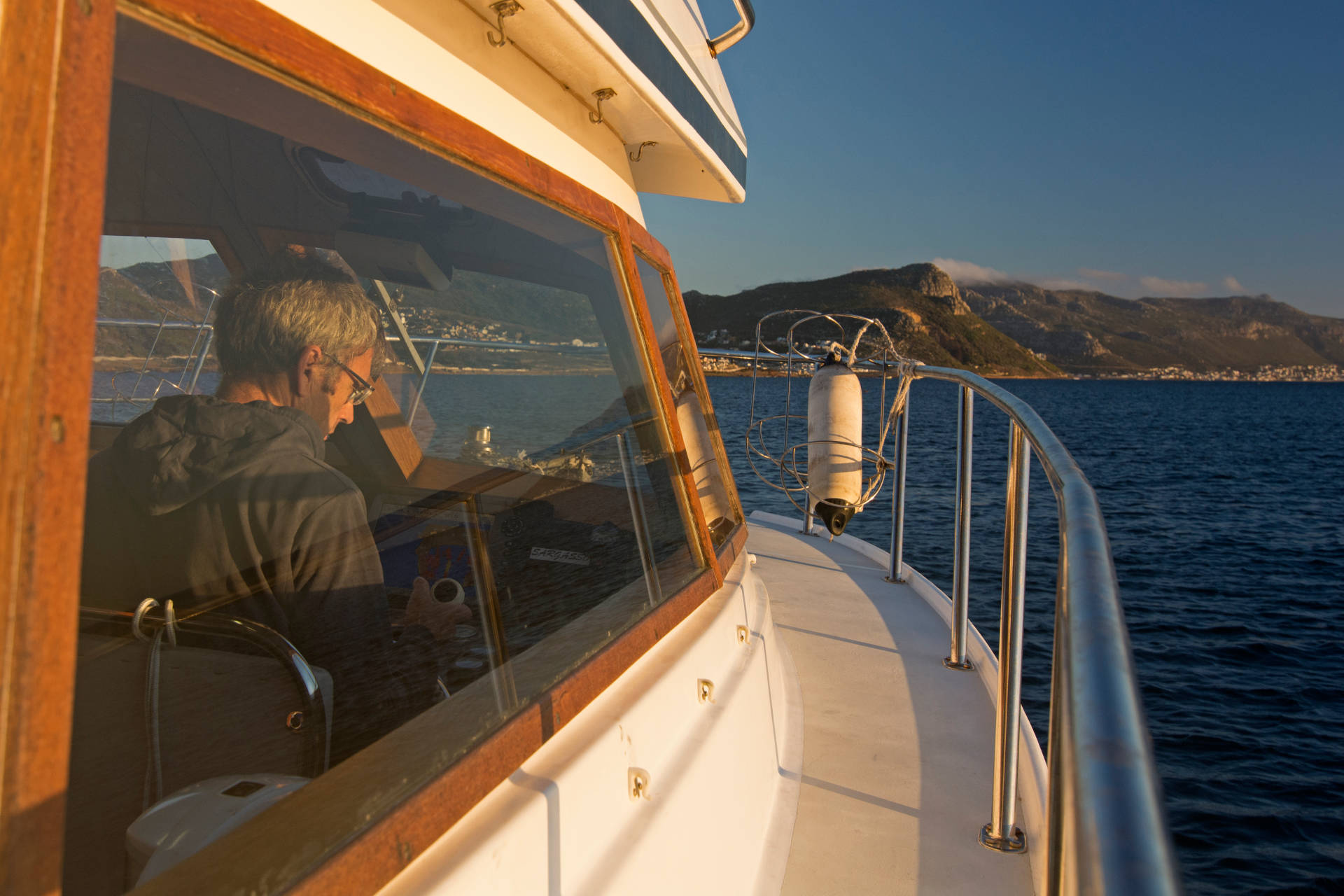
Fighting for reef fishes
Months after my day at sea aboard the Blue Starfish I find myself back in False Bay, this time at the eastern end of the mouth with Lauren, a PhD student at the University of Cape Town. We are with her research crew. It is now mid-afternoon and the strengthening wind has turned the bay into a bubbly, white-flecked bouillabaisse, making it harder and harder to work.
Lauren is using underwater camera systems to create a biodiversity map of the bay. Today she has to get at least another 10 camera drops done to make this trip worthwhile. We release the camera and it breaks through the surface with a large splash, followed by 50 metres of rope all the way to the bottom of the bay.
Her cameras work especially well for species that are resident and defend their territory, so they are perfect for reef fishes.
Colin Attwood, an associate professor of coastal fish ecology and fisheries at UCT and Lauren’s supervisor, is skippering. ‘For fish populations to recover properly you need a moratorium on fishing. Reef fishes recover so slowly that you only need to take a couple of fish off the reef every year and you will stop the recovery,’ explains Attwood. ‘More areas of False Bay need to be closed to fishing, so a number of reefs need to be identified and shut off – not necessarily permanently, but to allow for recovery.’

If he is correct about these temporary fish recovery zones, Lauren’s project could be key for saving False Bay’s reef fishes. She hopes to contribute to better spatial planning in the bay by determining where biodiversity is greatest and the relative abundance of different species – including humans.
By mapping out who is using the bay and why, she will be able to identify particularly vulnerable ecosystems, as well as potential conflict zones between us and the other animals we share the bay with.